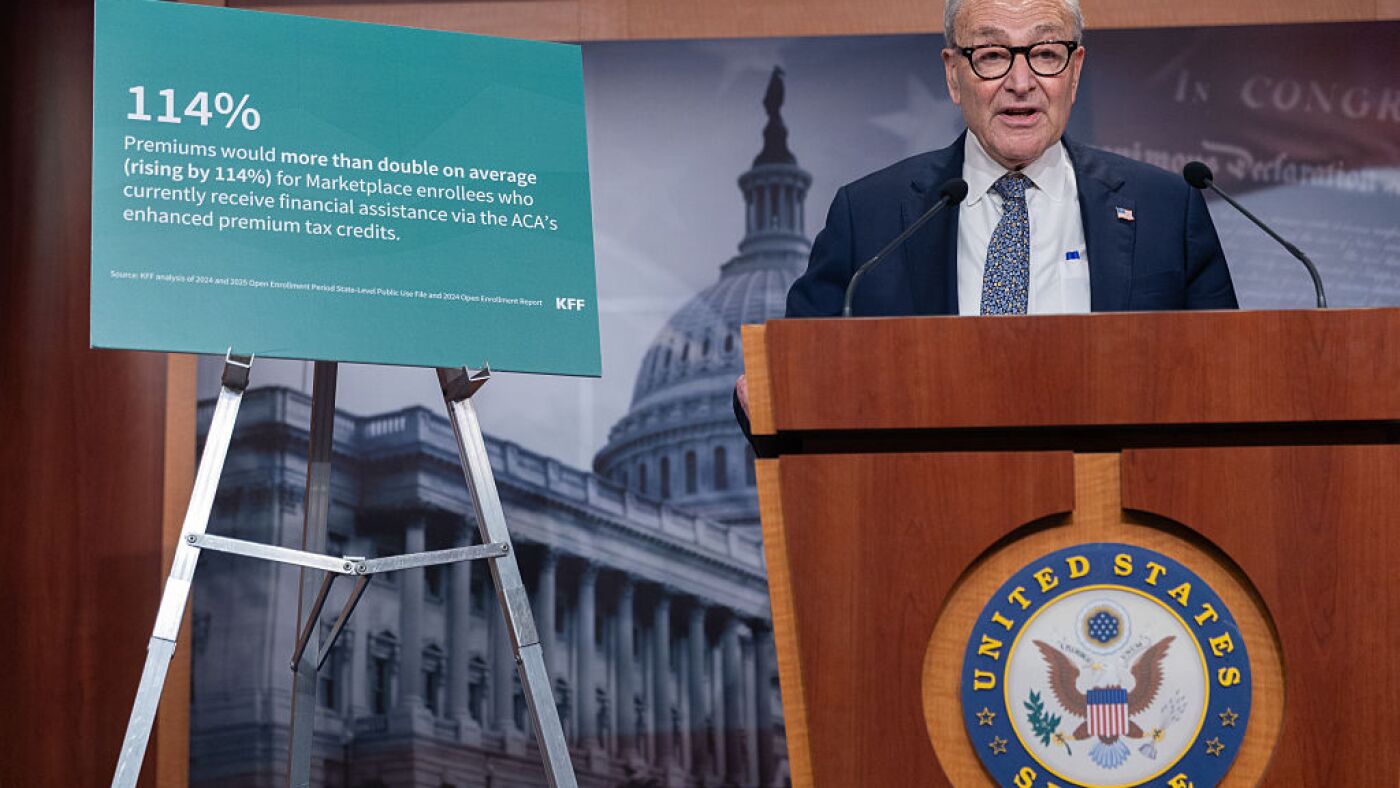
"This year enrollment hit a record 24 million. That is only about 7% of the U.S. population, but the people who rely on these plans are an influential group that includes small business owners, farmers and ranchers, says Cynthia Cox, vice president and director of the Program on the ACA at the nonpartisan health research organization KFF. Cox and her team just did an analysis on what will happen to people's premiums next year if Congress doesn't extend the enhanced subsidies."
""On average, we're expecting premium payments by enrollees to increase by 114%," she says. That means a lot of people are going to have to pay double the monthly premium they're paying now. Or, says Cox, they might have to switch to a higher deductible plan, change jobs to one that offers insurance, or they might lose their coverage. The Congressional Budget office estimates that 4 million people will become uninsured if the enhanced tax credits expire."
A fight over health policy caused a federal government shutdown centered on the expiration of enhanced premium tax credits for Affordable Care Act marketplace plans at year-end. Since 2021 the enhanced credits have kept ACA plans affordable, producing a record 24 million enrollees, about 7% of the U.S. population, including small business owners, farmers and ranchers. KFF analysis projects average enrollee premium payments will rise 114% if the enhanced subsidies lapse. Many enrollees could face paying double monthly premiums, shifting to higher-deductible plans, changing jobs for employer coverage, or losing coverage. The CBO estimates 4 million people would become uninsured and extending the credits would cost about $350 billion over ten years.
Read at www.npr.org
Unable to calculate read time
Collection
[
|
...
]